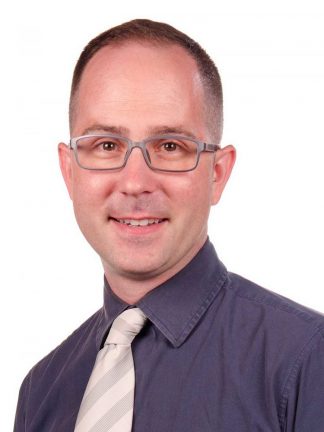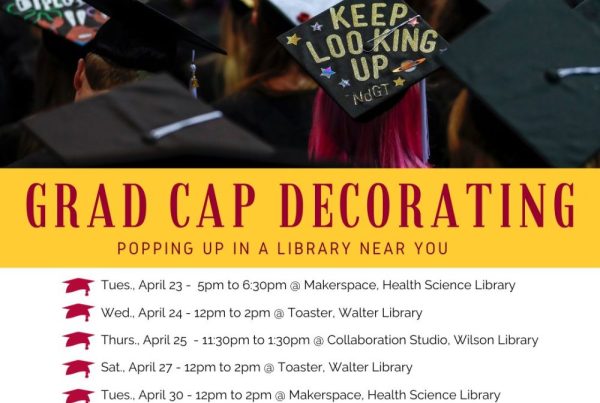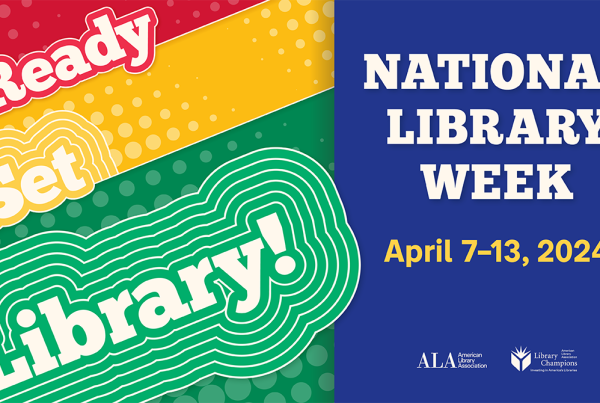By Allison Campbell-Jensen
On March 19, Reference and Outreach Archivist Ryan Bean will introduce the idea of global racism to the World Alliance of the YMCA. He’s been working with the World Council Secretary General Carlos Sanvee and YMCA of the USA staff on this presentation, which will prepare the ground for discussions at the 2022 World Council meeting.
“There are countries where public opinion is that racism does not exist,” Bean says. “They believe they are very homogenous in their makeup; they’ve codified egalitarianism; or they don’t make racial distinctions. … [Yet] othering or xenophobia is universal in human societies.”
Bean’s involvement grows out of nearly 20 years of experience, beginning as an intern, with the Kautz Family YMCA Archives. While these archives are managed by the University of Minnesota Libraries, they are nearly unique in that the YMCA remains the owner of the materials. Bean does research for them under the terms of their contract. The archives predate the national YMCA of the USA office and proceeded as part of the organization until 1985, covering more than 130 years.
Defining the archives role
During his time with the Y Archives, Bean’s understanding of the organization grew and he wanted to engage with the Y beyond such transactional activities as providing photos, confirming dates, and the like. About seven years ago, they began asking him to present at YMCA conferences.
“It’s a massive organization” — the Y-USA is a federation of 2,700 Y’s with more than 20,000 employees — “so you can look at just about anything through a YMCA lens,” he says.
The two areas of the Y that have understood the benefit that a historical perspective can offer, Bean says, are the international group and the national office’s diversity and inclusion department. The latter historically sought out the archives for examples of the Y doing well.
“One of the things they used to say was: ‘Martin Luther King stayed at the YMCA.’ When I was introduced to them, I was able to say, ‘Yes, that’s true. But he stayed at what was called the “colored Y.”’ So let’s have a conversation about that.”
Through the conversations, attending events, and becoming more enmeshed in their organization, Bean and the Y have developed a good working relationship. When COVID hit, Bean was asked to come up with a presentation for the board on the five times the Y had confronted a crisis and how the organization responded. “Then, with the murder of George Floyd,” he says, “I anticipated that, if they were worth their salt, they would want to understand this and have a conversation about this.”
A focus on systemic racism
“He’s in high demand — there’s more work than there is Ryan.”
—Seana Hasson
Y-USA’s Senior Director of Research Analytics and Insights
He reviewed past pieces he had written about race, diversity, inclusion, and the Y, then pulled them together in a way that was new.
“I had operated in this space previously,” Bean says, “but this was an opportunity to turn it from a more passive space to a more straight on tackling and reframing the narrative … as the history of systemic racism in the Y.”
After hearing it, the board asked him to present it as part of a November series called “Uprooting Racism,” which has been seen more than 600 times. The presentation showed missed opportunities and also situations in which the Y was complicit or even benefited from racist systems imbedded in American society. Bean also presented about his long-term research into the Y’s Indian Guides program, in which parents and children dressed up like Native Americans as part of a bonding experience. Now Y camping area staff are reckoning with cultural appropriation and exchanging emails with Bean to learn more.
“Social justice issues are coming more to the forefront, so I am tackling this from a variety of angles,” Bean says. “They are using [the presentations] to drive conversations.”
Bean’s perspective is valuable, says Seana Hasson, Y-USA’s Senior Director of Research Analytics and Insights, because of his deep understanding of the collections and from working with scholars about the Y’s role in society.
“The work specific to racism has raised awareness and deepened our understanding with certain groups and will be integrated into presentations and trainings,” Hasson says. “It’s been foundational in … changing perspectives that are likely to result in action. It will continue to be used and re-used with different audiences.”
Bean emphasizes that he is not coming at this work from a shame perspective but rather encouraging people in the Y to want to learn more so that they can identify how historical frames may be continuing to influence them today.
“What is the legacy of the YMCA being a predominantly white, middle-class institution?” Bean says. “How does it operate from that historical, foundational lens in a way that maybe they’re not aware of?”
Some things have not captured the attention of a predominantly white audience, he says. For instance, the YMCA was the impetus for what came to be the Southern Poverty Law Center. Their first lawsuit they list was against the Montgomery, Alabama, Y for racial discrimination, after which they incorporated the Southern Poverty Law Center.
In December, Bean was contacted by the Y-USA: The World Alliance was interested in adapting his presentation to contribute to an anti-racism dialogue prior to their 2022 World Council meeting.
Taking his work to the global Y organization, Bean will again design the presentation as he did the one for the Y-USA — to raise the issue of race and ask questions. “What is the impact of this in your country? To what extent do you recognize this as being true? Who are the marginalized in your community that you serve?” He is impressed by the Y’s increasing appetite to engage these difficult, critical questions on the national and international level.
A transparent agenda
His agenda, Bean says, is transparent.
“Ultimately, I hope that they will embark on a truth and reconciliation process. Because that, by necessity, requires more perspectives and voices, it would draw from the archives. So it positions the archives very well. Here’s the material, here’s the evidence you need to work through and to learn from.” He’s not driving the critical conversations, yet he has an important role.
“As an activist-archivist,” Bean says, “I am trying to position the archives as a very real collaborator and catalyst to their institutional priorities to becoming an anti-racist, multicultural, inclusive organization.” In times like these, archives can be critical to the Y’s institutional success.
Says Hasson: “He’s in high demand — there’s more work than there is Ryan.”





